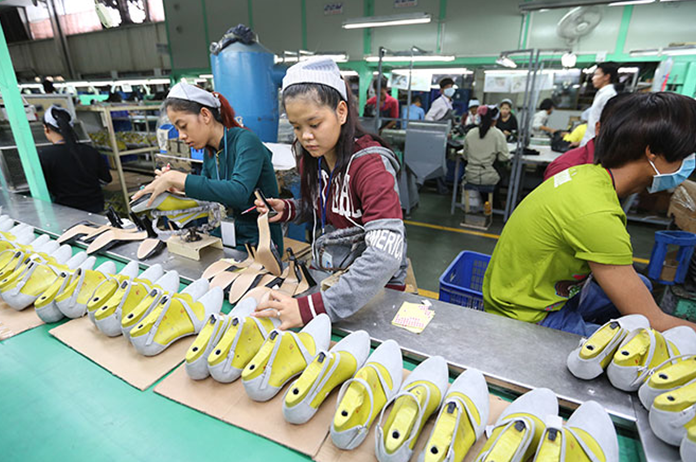Amid Warm Relations, Exports To Japan Soar

With trade and political ties between the governments strengthening, Cambodian exports to Japan rose sharply in the first nine months of the year.
Trade between the nations increased notably from January to September, with Cambodian exports soaring 23.5 percent and imports growing by 12.7 percent, according to the latest numbers from the Japan External Trade Organisation (JETRO). $1.18 billion worth of shipments were sent to Japan, while Cambodia bought about $293 million in Japanese goods.
In September alone, exports to Japan rose by more than 22.5 percent compared to the same month last year, while imports grew by 21.9 percent. During that month, exports were valued at $174.5 million, while imports were $37.6 million.
Most Cambodian exports were garments, footwear products, and, to a lesser degree, electronic components such as mobile phone batteries. Japan mostly exported machinery, cars, and electronics to the Kingdom, as well as beef, steel, and pharmaceuticals, according to JETRO.
Commerce Ministry spokesman Long Kemvichet told Khmer Times that bilateral relations are cordial in every area, not just trade. He said JETRO’s latest trade figures show trust in Cambodian products and reinforce the ever-growing importance of regional integration.
During a meeting in Phnom Penh on Tuesday, JETRO president Miyao Masahiro and the Cambodian Minister of Industry Cham Prasidh praised the trade relations between their governments.
Mr. Prasidh told Mr. Masahiro that the Cambodian government has high appreciation for JETRO’s work in Cambodia. “JETRO plays a key role in boosting trade and investment in Cambodia. We always appreciate the collaboration of Japanese investors in the development of the country,” Mr. Prasidh said.
He said that in the past, Japanese companies hesitated to invest in the Kingdom citing safety concerns, but added that now they are eager to invest in a variety of sectors. There are 82 Japanese factories operating in Cambodia, which have generated 30,000 jobs, the minister said.
“We called on Japanese firms to keep investing in Cambodia as much as possible. The ministry will continue to support and facilitate their investments,” Mr. Prasidh said.
In response, Mr. Masahiro thanked the ministry and the Cambodian government for their efforts to support Japanese firms and investors. “We will keep up the work to attract Japanese investors to Cambodia, and we will endeavour as well to support small and medium-sized enterprises in Cambodia,” Mr. Masahiro said.
Mey Kalyan, senior advisor to the Supreme National Economic Council, said previously that the growth in exports to Japan was impressive. He said it is particularly important to nurture the Kingdom’s trade relations with Japan, as it is key to diversifying Cambodia’s export markets, which continue to be dominated by the European Union and the US.
“Now, more and more Japanese investors are coming to invest in the Kingdom, particularly in Banteay Meanchey’s Poipet Special Economic Zone,” Mr. Kalyan said. He explained that most of those Japanese investors were previously based in Thailand but decided to set up their plants in the Kingdom because it has lower labour costs and is politically stable.
He said Cambodia is also attracting Japanese investment due to its investor-friendly policies, which include plenty of tax breaks for large investments. Moreover, Mr. Kalyan said Japanese investors “know that the Cambodian economy will continue growing strongly in years to come.”